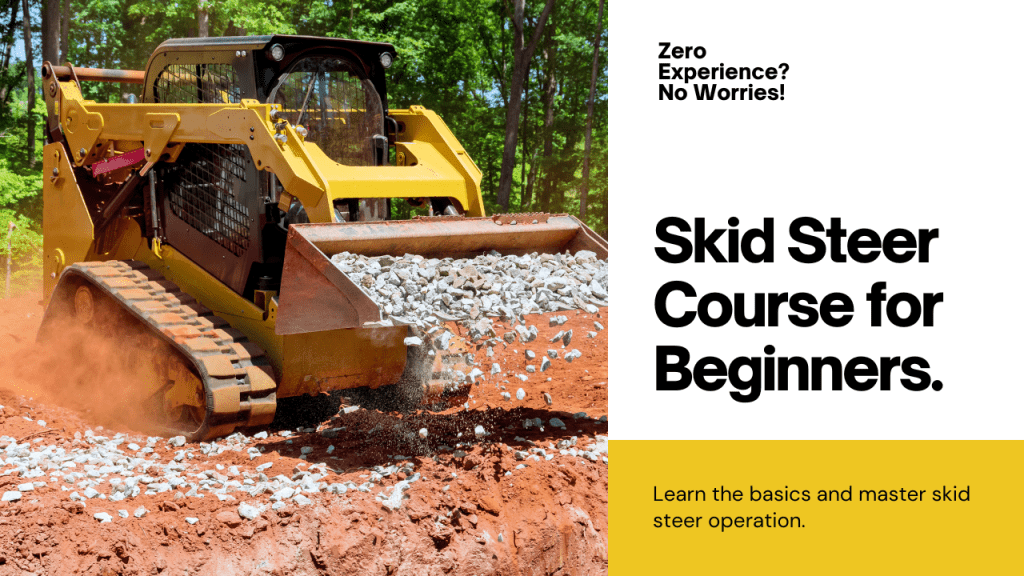
A dirt worker is a person who performs manual labor involving the excavation, grading, or movement of earth, soil, or other similar materials. They use hand tools such as shovels, picks, and rakes, as well as heavy machinery such as excavators, bulldozers, and graders. Dirt workers are responsible for preparing land for construction, installing drainage systems, and maintaining roads and other infrastructure.
Dirt workers play an essential role in the construction and maintenance of our built environment. They are responsible for the foundations of our homes, the roads we drive on, and the parks we enjoy. Their work is often physically demanding and requires a great deal of skill and experience.
The history of dirt work dates back to the earliest days of human civilization. The first dirt workers were likely the farmers who dug irrigation ditches and built terraces to improve their crop yields. As societies grew more complex, so did the need for dirt workers. They were needed to build roads, bridges, and other infrastructure projects.
1. Manual Labor
Manual labor is an essential part of dirt work. Dirt workers use hand tools and heavy machinery to excavate, grade, and move earth, soil, and other materials. These tasks require a great deal of physical strength and endurance, as well as skill and experience.
One of the most important aspects of manual labor is the ability to operate heavy machinery safely and efficiently. Dirt workers must be able to control the machine’s movements precisely, and they must be aware of the potential hazards involved. They must also be able to work in a variety of conditions, including extreme heat, cold, and rain.
In addition to operating heavy machinery, dirt workers also use a variety of hand tools. These tools include shovels, picks, rakes, and tampers. Dirt workers must be able to use these tools effectively in order to perform their tasks efficiently.
Manual labor is an essential part of dirt work. Dirt workers must be able to use hand tools and heavy machinery safely and efficiently in order to complete their tasks. These tasks are essential to the construction and maintenance of our built environment.
2. Physical Strength
Dirt work is a physically demanding job that requires a great deal of strength and endurance. Dirt workers must be able to lift heavy objects, dig ditches, and operate heavy machinery. They must also be able to work in all types of weather conditions.
- Strength: Dirt workers must have the strength to lift heavy objects and to operate heavy machinery. They must also be able to withstand the physical demands of the job, such as standing for long periods of time and working in extreme heat or cold.
- Endurance: Dirt workers must have the endurance to work long hours and to perform physically demanding tasks. They must also be able to work in a variety of weather conditions.
The physical demands of dirt work can be challenging, but they are also essential to the job. Dirt workers play a vital role in the construction and maintenance of our infrastructure. They are responsible for building the roads we drive on, the bridges we cross, and the buildings we live in. Their work is essential to our way of life.
3. Skill and Experience
In the construction industry, skill and experience are essential for dirt workers. They must be able to operate heavy machinery safely and efficiently, and they must be aware of the potential hazards involved in their work. This requires a combination of formal training, on-the-job experience, and a commitment to safety.
- Training: Dirt workers typically receive formal training in the operation of heavy machinery. This training may be provided by a vocational school, a community college, or an employer. Training programs typically cover the basics of machine operation, as well as safety procedures.
- Experience: On-the-job experience is essential for dirt workers. They need to gain experience operating different types of machinery in a variety of conditions. This experience helps them to develop the skills and knowledge necessary to work safely and efficiently.
- Safety: Safety is a top priority for dirt workers. They must be aware of the potential hazards involved in their work, and they must take precautions to avoid injury. This includes wearing appropriate safety gear, following safety procedures, and being aware of their surroundings.
The combination of skill, experience, and safety is essential for dirt workers. They play a vital role in the construction industry, and they must be able to work safely and efficiently to ensure the success of any project.
4. Problem Solving
Problem solving is an essential skill for dirt workers. They often encounter unexpected challenges and must be able to think on their feet to find solutions. This requires the ability to identify the problem, analyze the available information, and develop and implement a solution. Dirt workers must also be able to make quick decisions, as they often work in time-sensitive situations.
- Adaptability: Dirt workers must be able to adapt to changing conditions and find solutions to unexpected problems. For example, if they encounter a buried utility line while digging a trench, they must be able to quickly develop a plan to avoid damaging the line.
- Critical thinking: Dirt workers must be able to think critically to identify the root cause of a problem and develop an effective solution. For example, if a piece of equipment is not working properly, they must be able to troubleshoot the problem and find a way to fix it.
- Decision making: Dirt workers must be able to make quick decisions in order to complete their tasks efficiently. For example, if they are working on a project with a tight deadline, they must be able to make decisions about how to allocate their time and resources.
- Resourcefulness: Dirt workers must be able to be resourceful and find creative solutions to problems. For example, if they need to move a large object but don’t have the right equipment, they must be able to come up with a way to do it using the resources they have available.
These are just a few of the problem-solving skills that dirt workers need to be successful. By developing these skills, dirt workers can improve their efficiency and productivity, and they can help to ensure the success of their projects.
5. Teamwork
Dirt workers often work as part of a team, and they must be able to communicate and cooperate with others to complete their tasks successfully. This requires the ability to work together to achieve a common goal, to share information and resources, and to resolve conflicts.
- Communication: Dirt workers must be able to communicate effectively with their team members in order to coordinate their work and to avoid accidents. They must be able to give and receive instructions clearly and concisely, and they must be able to listen to and understand the needs of their team members.
- Cooperation: Dirt workers must be able to cooperate with their team members in order to achieve their goals. They must be willing to share their resources and to help out their team members when needed. They must also be able to work together to solve problems and to overcome challenges.
- Conflict resolution: Dirt workers must be able to resolve conflicts with their team members in a constructive way. They must be able to communicate their concerns respectfully and to listen to the concerns of others. They must also be able to work together to find solutions that are acceptable to everyone.
- Teamwork skills: Dirt workers must have a variety of teamwork skills in order to be successful. These skills include the ability to work independently, to take initiative, and to be a team player. They must also be able to adapt to changing conditions and to work under pressure.
Teamwork is essential for dirt workers. By working together, dirt workers can achieve more than they could on their own. They can complete tasks more quickly and efficiently, and they can reduce the risk of accidents. Teamwork also helps to create a positive and supportive work environment.
6. Safety
Dirt workers face a variety of safety hazards on the job, including:
- Heavy machinery: Dirt workers operate heavy machinery, which can be dangerous if not used properly. They must be trained in the safe operation of all machinery and must follow all safety procedures.
- Excavations: Dirt workers often work in excavations, which can be unstable and can collapse. They must be aware of the dangers of excavations and must take precautions to avoid injury.
- Electrical hazards: Dirt workers may come into contact with electrical hazards, such as downed power lines. They must be aware of the dangers of electrical hazards and must take precautions to avoid injury.
- Weather conditions: Dirt workers often work in inclement weather, which can create additional hazards. They must be prepared for all types of weather conditions and must take precautions to avoid injury.
Dirt workers must take precautions to avoid injury, including:
- Wearing appropriate safety gear: Dirt workers must wear appropriate safety gear, such as hard hats, safety glasses, and gloves.
- Following safety procedures: Dirt workers must follow all safety procedures, such as those for operating machinery and working in excavations.
- Being aware of their surroundings: Dirt workers must be aware of their surroundings and be on the lookout for potential hazards.
- Taking breaks: Dirt workers must take breaks throughout the day to avoid fatigue, which can lead to injury.
Safety is a top priority for dirt workers. By taking precautions to avoid injury, dirt workers can help to ensure a safe and healthy workplace.
FAQs about Dirt Work
Dirt work is an essential part of the construction industry. Dirt workers perform a variety of tasks, including excavation, grading, and the movement of earth, soil, and other materials. These tasks are essential for the construction of roads, bridges, buildings, and other infrastructure projects.
Question 1: What is dirt work?
Dirt work is the process of excavating, grading, and moving earth, soil, and other materials. This work is essential for the construction of roads, bridges, buildings, and other infrastructure projects.
Question 2: What are the different types of dirt work?
There are many different types of dirt work, including excavation, grading, trenching, and backfilling. Excavation is the process of digging a hole in the ground. Grading is the process of leveling the ground. Trenching is the process of digging a narrow ditch. Backfilling is the process of filling a hole or ditch with dirt.
Question 3: What equipment is used for dirt work?
A variety of equipment is used for dirt work, including excavators, bulldozers, graders, and dump trucks. Excavators are used to dig holes and trenches. Bulldozers are used to level the ground and move dirt. Graders are used to smooth the ground. Dump trucks are used to haul dirt and other materials.
Question 4: What are the safety hazards associated with dirt work?
There are a number of safety hazards associated with dirt work, including cave-ins, trench collapses, and equipment accidents. Cave-ins can occur when the sides of an excavation are not properly supported. Trench collapses can occur when the sides of a trench are not properly sloped. Equipment accidents can occur when equipment is not properly operated or maintained.
Question 5: How can I prevent injuries when working in dirt?
There are a number of things you can do to prevent injuries when working in dirt, including wearing appropriate safety gear, following safety procedures, and being aware of your surroundings. Appropriate safety gear includes hard hats, safety glasses, and gloves. Safety procedures include always inspecting equipment before use, never working alone, and being aware of the weather conditions.
Question 6: What are the benefits of dirt work?
Dirt work is essential for the construction of roads, bridges, buildings, and other infrastructure projects. These projects provide essential services to our communities and improve our quality of life. Dirt work also provides jobs and economic benefits to our communities.
Summary of key takeaways or final thought: Dirt work is an essential part of the construction industry. It is important to be aware of the safety hazards associated with dirt work and to take precautions to prevent injuries. By following safety procedures and using proper equipment, you can help to ensure a safe and productive work environment.
Transition to the next article section: Dirt work is a challenging but rewarding career. If you are interested in a career in dirt work, there are a number of resources available to help you get started.
Dirt Work Tips
Dirt work is an essential part of the construction industry. Dirt workers perform a variety of tasks, including excavation, grading, and the movement of earth, soil, and other materials. These tasks are essential for the construction of roads, bridges, buildings, and other infrastructure projects.
Here are five tips for dirt workers:
Tip 1: Always inspect your equipment before use.
This includes checking for any damage or leaks. Never operate equipment that is not in good working condition.
Tip 2: Never work alone.
Always have a partner or coworker with you when working in dirt. This is especially important when working in excavations or trenches.
Tip 3: Be aware of your surroundings.
Pay attention to the weather conditions and the condition of the ground. Be aware of any potential hazards, such as overhead power lines or underground utilities.
Tip 4: Wear appropriate safety gear.
This includes a hard hat, safety glasses, gloves, and sturdy boots. Always wear your safety gear when working in dirt.
Tip 5: Take breaks throughout the day.
This will help to prevent fatigue, which can lead to accidents. Drink plenty of water and eat healthy snacks throughout the day.
By following these tips, dirt workers can help to ensure a safe and productive work environment.
Summary of key takeaways or benefits:
- Following these tips can help to prevent accidents and injuries.
- Dirt workers who follow these tips can help to create a safe and productive work environment.
- These tips can help dirt workers to be more efficient and productive.
Transition to the article’s conclusion:
Dirt work is a challenging but rewarding career. By following these tips, dirt workers can help to ensure a safe and successful career.
Conclusion
Dirt work is an essential part of the construction industry. Dirt workers perform a variety of tasks, including excavation, grading, and the movement of earth, soil, and other materials. These tasks are essential for the construction of roads, bridges, buildings, and other infrastructure projects.
Dirt work is a challenging but rewarding career. Dirt workers play a vital role in the construction and maintenance of our built environment. They are responsible for the foundations of our homes, the roads we drive on, and the parks we enjoy. Their work is essential to our way of life.
By following the tips outlined in this article, dirt workers can help to ensure a safe and successful career. They can also help to create a more sustainable and resilient built environment.



